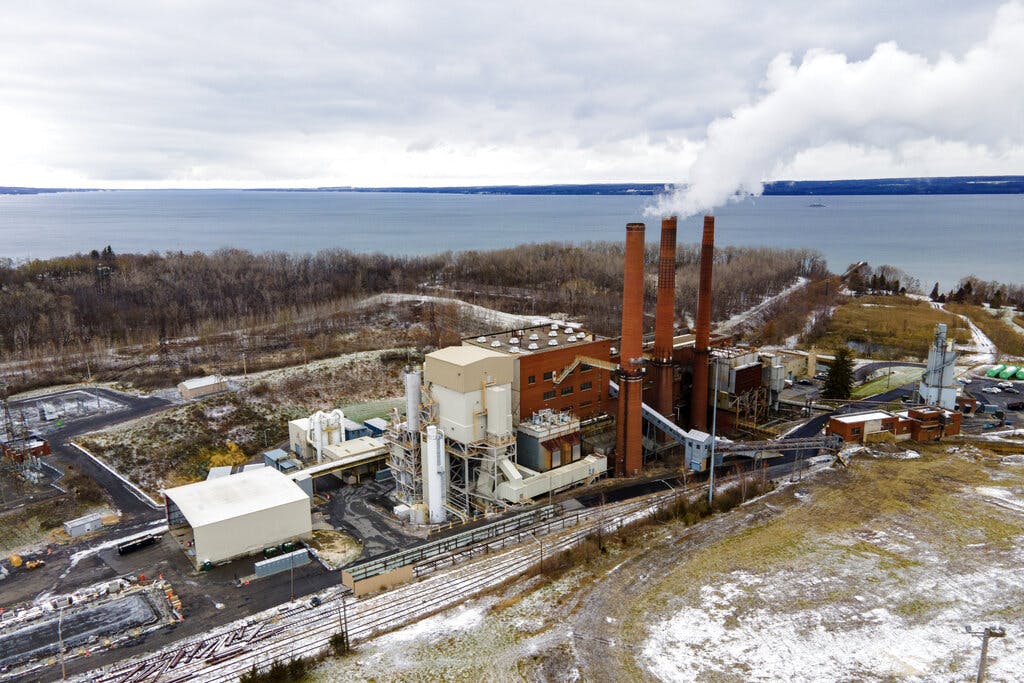Crypto Industry Responds After Lawmakers Attack on Environmental Concerns
The representatives want a probe into the ‘negative climate impacts and examining the energy use associated with crypto mining.’

New York is playing a central role in the national cryptomining debate as lawmakers and industry figures make their cases to the Environmental Protection Agency as it weighs action.
Representative Alexandria Ocasio-Cortez of New York was among a coalition of 23 U.S. representatives who last month signed off on a letter to the EPA penned by Congressman Jared Huffman asking the agency to investigate cryptomining facilities’ “compliance with environmental statutes.”
The representatives want a probe into the “negative climate impacts and examining the energy use associated with crypto mining.”
They asked that the regulatory body “investigate and address any harm” these facilities may cause and “engage with the communities when reviewing permits.”
This followed a letter sent by Senator Schumer last year urging the “EPA to exercise its full oversight of the Title V Clean Air permit.”
Generally, the lawmakers are asking the EPA to review cryptomining activities to see if they violate any existing laws, citing the Clean Air Act and the Clean Water Act among others.
A group of 54 private sector leaders, including Twitter’s founder, Jack Dorsey, responded in defense of their industry and their cryptomines, which they call datacenters.
“Datacenters which contain ‘miners’ are no different than datacenters owned and operated by Amazon, Apple, Google, Meta, and Microsoft,” the respondents wrote.
“All datacenters utilize electricity generated externally,” they added. “Datacenters engaged in the industrial-scale mining of digital assets do not emit CO2 or any other pollutants, like other industrial facilities do; they are merely server farms engaged in computation.”
Both letters cited as an example Greenidge Generation, a reopened power plant in Dresden, New York, that is used for cryptomining. The gas-fired plant has drawn criticism recently, as what had been a plant used to generate power for public consumption was reopened to power a Bitcoin mine.
The industry letter argued: “If New York wishes to approve or deny Greenidge’s application, it has nothing to do with digital asset mining, it is only related to energy generation.”
That argument drew the attention of a New York Public Interest Research Group analyst, Russ Haven, who claimed the industrialists were misleading in their characterization of cryptomining.
Mr. Haven took issue with the assertion that “all datacenters utilize electricity generated externally.” The Greenidge facility generates electricity for the explicit purpose of mining Bitcoin.
“Greenidge is unique — or not so unique because there are 30 some odd plants that could be converted to a similar operation,” Mr. Haven told the Sun, referencing the number of mothballed plants that could be converted in New York.
Mr. Haven added that mines can “just masquerade and say we’re a power plant and get all those benefits but use up 99 percent of the power,” he concluded.
Some have argued in favor of the opportunity to revive old infrastructure, while others contend that putting the plants to use in this way threatens other industries like agriculture.
Mr. Haven said the argument that cryptomines do “not emit CO2 or any other pollutants” is based on a technicality. He was also concerned that future cryptomines would be permitted as power plants.
“They have this Certificate of Public Convenience and Necessity that seems like a charade in this case because they are not really fulfilling a public need,” he added.
Greenidge Generation did not respond to a request for comment.
Putting aside the example of Greenidge, the industry representatives are looking to be treated “the same as Microsoft and other datacenter operators” who “simply purchase electricity from the grid.”
In a show of sensitivity to environmental concerns, their letter argued that “Bitcoin mining in the aggregate employs an estimated 58.4 percent sustainable energy” compared with “the default US energy mix at 21 percent sustainable.”
This claim carries its own set of questions, including the possible increase in the cost of electricity in communities that host facilities and the tradeoffs for the jobs they may provide.
“Cryptomining operations that source power from the grid drive up energy bills for the rest of us and increase our reliance on fossil fuels,” activist Yvonne Taylor said on the issue.
These and other issues are far from settled as Americans decide what relationship to the cryptomining industry and its energy consumption. One extreme reaction is China, which cited energy consumption as a principal reason for banning the industry.

